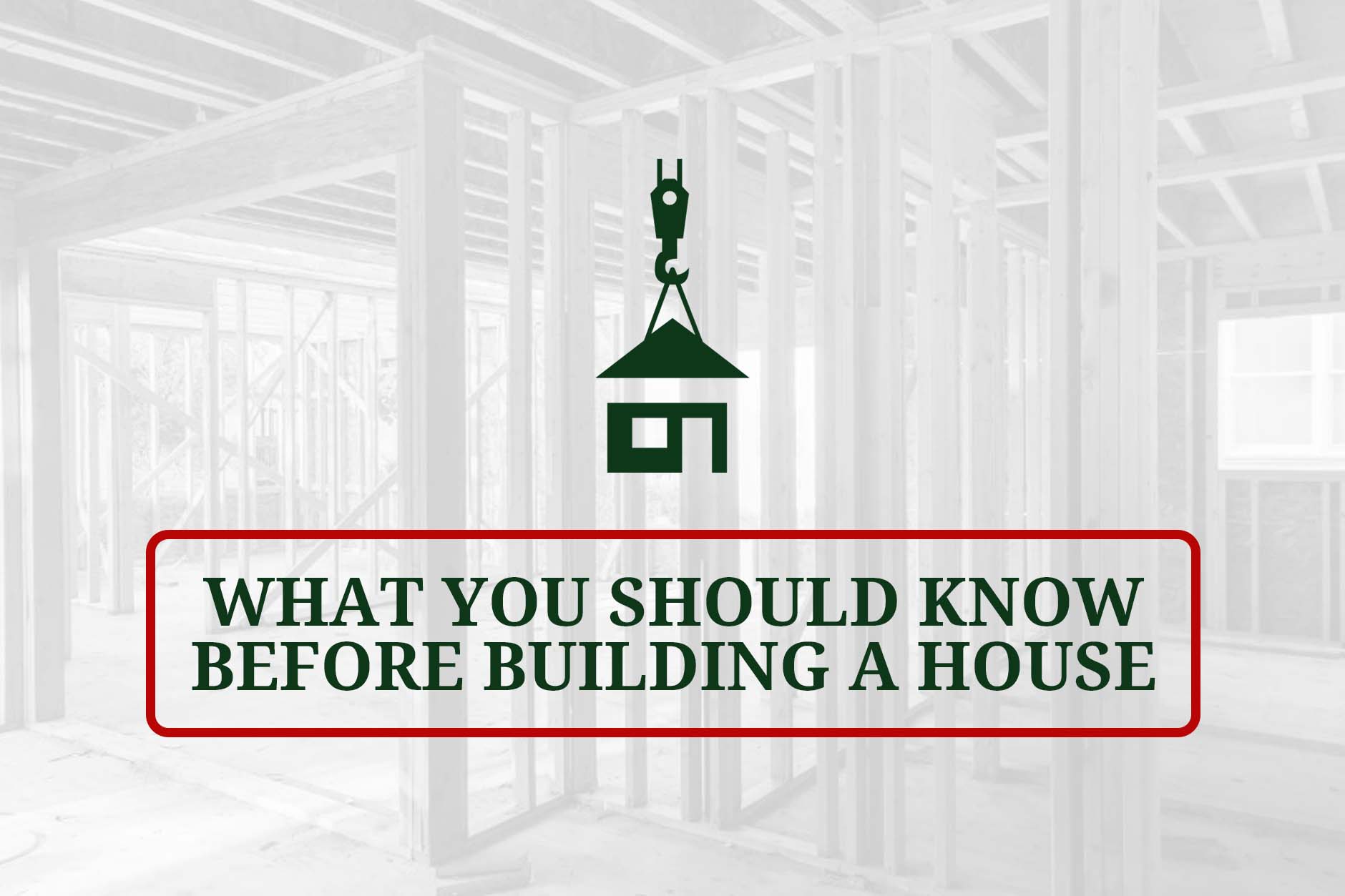
Building a house can be both exciting and stressful. For most people, it is also something that they only do once in their lifetime. It isn’t surprising that many homeowners tell us that they wish they would have known certain things before getting started.
Building a home is a pretty different process than buying a house. From finding – and financing – the property to weighing in on every little detail of the design, it is both more work and more fun to build a house. We have put together a list of the things that you should know before you build a house in Delaware.
At Carl Deputy and Son Builders, we build semi-custom and custom homes in Kent County, Sussex County, and the Eastern Shore of Maryland. We collaborate with our clients to help them design a house that works for them, all the while working to stay on budget and within the anticipated timeline. Contact us to talk to a Delaware custom home builder about building your own home in the Diamond State.
Have questions about building a home or making home renovations? Sometimes talking directly to an expert is easier than reading a post. Speak with a builder at Carl Deputy & Son Builders > (302) 284-3041
Things You Should Know Before You Build Your House
If you are thinking about building a house, you might find yourself daydreaming about a big new kitchen or a gorgeously landscaped yard. But you might not be aware of what you really need to know before you build a house. Below, we break down some of the top things that you should know before you embark on the process.
Your Must-Haves for Your Home
Before you embark on the home-building process, you should spend some time thinking about what you actually want and need for your home. This should involve more than simply making a board on Pinterest or scrolling through Houzz. You need to truly think about your non-negotiables when it comes to your new home.
Some things that you should consider include:
- Your family: the size and layout of your house will be based in part on the composition of your family. If you have a few kids but plan to have more, then any house that you build should be able to accommodate them. Similarly, you might want to be on the same floor with your young kids – which will factor into the design of your house. If you know that you might move your parents or in-laws in to care for them as they get older, you might want to add semi-private living quarters for them.
- Your lifestyle: if you entertain a lot, then you might want a floor plan that can accommodate a crowd – such as a big open living area or outdoor space for large gatherings.
- Your job: if you work remotely or have your own business, then you might want to incorporate a home office into your floor plan. Similarly, if you have a partner who also works from home (or does so occasionally), then you might want two separate areas for your offices.
- Your belongings: do you have a lot of things that need to be stored, such as holiday decorations or sports equipment? Your new home should include plenty of space where you can organize and stow your “stuff” – whether that’s kayaks for paddling down the river or a 12 foot tall skeleton for Halloween.
- Your health: whether you have a disability now or want to plan for the future, it is smart to take your health into consideration when planning a house. 13% of all Americans have a disability – and that number increases to almost 50% by age 75. When building a house, you may want to plan it in a way so that it can be accessible in the future, such as by incorporating hallways and doorways that can accommodate a wheelchair or putting a bedroom on the first floor.
While you can’t necessarily plan for every contingency, you can and should put energy into figuring out what will actually work for you and your family. For example, shower rooms (with a freestanding tub and a shower in one enclosed area) might be a hot new trend, but will it really work for your lifestyle? Most people only build one house in their lifetimes – so make sure that yours truly meets your needs both now and (as much as possible) in the future.
Your Budget
Before you even start meeting with contractors, you should have a solid budget set. It can be easy to get carried away with upgrades once you’re making design choices or even to be talked into a much more expensive build than you can truly afford. To avoid being “house poor,” you should go over your finances and come up with a realistic budget before you begin the process.
While your budget may change over time – such as if the cost of certain materials goes up – having this number in your head will help you make more financially savvy choices. This can include minimizing the size or complexity of a custom home to stay within your budget or building a semi-custom home instead. Having a firm number in mind will help to prevent costs from creeping up on you – leaving you with a much bigger mortgage than what you anticipated.
How You’ll Pay for Your House
Financing for new home construction is a bit different than a traditional mortgage. Typically, you will need two separate loans – one for the land that you buy and one for the construction costs. You may also qualify for a combined property and home loan.
Land loans are used to purchase your lot before construction. These loans often have a higher interest rate and require a larger down payment because they are more speculative than buying a house. You can get a loan for raw land, unimproved land, or improved land, with the highest rates typically for the land that requires the most work before building (raw land).
In addition, you will likely need a construction loan to finance the actual building of your home. There are two main types of construction loans: a construction-to-permanent loan, which converts into a traditional mortgage once your home is complete, or a construction-only loan, which usually must be settled within a year. Typically, homeowners either pay off these mortgages in cash or by obtaining a mortgage.
Financing for a new build isn’t as straightforward as it is for an existing home. You should talk to your lender about your options before embarking on the process so you know exactly what to expect before you sign any contracts with a builder.
Where You’ll Build
Just like thinking about what type of house you want to build, you will also need to think about where you will build. In some areas, you may have limited options for lots that are suitable for construction. If you have more choices, then you will need to consider factors such as:
- Schools: if you have school-aged children, check to see what schools are zoned for any property that you are interested in – which may affect your final decision.
- Proximity: you might think it isn’t a big deal that a piece of land that you want is 15 miles away from your current home, but those 15 miles could add 30 minutes or more to your commute – twice a day! Similarly, if you are looking at more rural lots, consider what it will be like to have to drive to get to the grocery store or to not have delivery options.
- Lifestyle: for some people, a home out in the woods – away from the hustle and bustle – is ideal. For others, the convenience of being close to everything and the ability of their kids to play with the neighbors is more important. Carefully think about what your lifestyle is like, and whether the property you are considering will meet your dreams.
In real estate, location is everything. The same is true whether you are building or buying a house. Spend some time in the area and really think about whether you could see yourself living there before you commit to any property.
What You Want in a Builder
There are lots of home builders in Delaware – but from craftsmanship to customer service, they certainly aren’t all the same. Before you build a home, you should know what you want when it comes to a builder. For example, is it most important to you that they can build a house quickly? Or is it your priority that your house is solidly built, even if it takes more time?
Talking to family and friends is a great place to start getting names of quality builders in Kent and Sussex Counties. You can also read online reviews. Once you have the names of some recommended builders, you can talk to the companies themselves. Ask plenty of questions about how they operate, their process, and anything else that matters to you – such as the ability to customize your home.
A Realistic Timeline
In a perfect world, it wouldn’t take much time to build a house. For better or for worse, building a house takes time. Depending on the size and complexity of the project – and other factors like weather and dock worker strikes – it could take 1 to 2 years to complete a home build.
It is important going into the home-building process that you have a realistic idea of the amount of time that it will take to build your house. Your builder should give you a rough estimate, but keep in mind that this could change due to unforeseen circumstances. Keep the lines of communication open with your builder, and be prepared for the eventuality that your build might take more time than you originally thought.
The Home Building Process Can Be Fun
Building a home is often described as a stressful experience. It definitely can be a challenge, especially when you face unexpected bumps in the road like materials shortages. But it can also be enjoyable – a time when you can make your dreams come true. When you feel overwhelmed by all of the details, try to remember that this may be a once-in-a-lifetime chance to build the perfect home for you.
Along the way, you can get involved in the process in various ways. Your builder can schedule visits to the construction site so that you can see the process – and take plenty of photos and videos! You can even sign the wood in the framing of the house or write your name in the wet concrete if you’d like.
You should also keep the lines of communication open with your builder. A good builder will pride themselves on customer service – and will keep you informed throughout the process. Be sure that you do the same – being open and honest about what you like and don’t like, and sharing any concerns that you might have.
Build the Home of Your Dreams with Carl Deputy & Son Builders
If you are contemplating building your own house, you may be nervous about the process. It can be a challenging time for many homeowners as they stress about the details, budget, and timeline. Understanding what goes into building a home – and what they can control – can help give you peace of mind throughout the process.
For more than 40 years, Carl Deputy & Son Builders has built custom and semi-custom homes in Kent and Sussex Counties in Delaware and the Eastern Shore of Maryland. We also renovate homes for clients in the region. For each construction job, we work hand in hand with our clients to make sure that they know what to expect and that they are getting what they want. To learn more or to schedule a consultation with a member of our team, give us a call at 302-284-3041 or fill out our online contact form.





